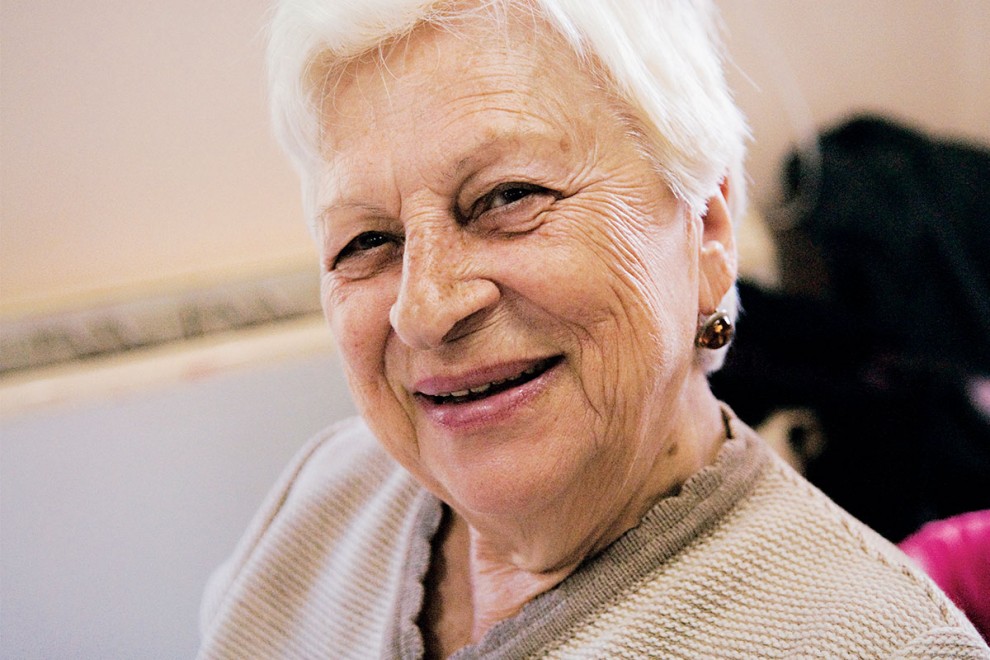
Golda lost all of her teeth after surviving a concentration camp and living in war-torn Europe. Afraid to go to the dentist all her life, she suffered from poor nutrition and the social isolation that resulted from embarrassment and poor speech.
For Golda, the dental office—with its loud sounds, harsh smells and medical instruments—evoked terrible fear because she knew about the medical experiments that were performed on Jews during the Holocaust.
She did, however, join the Jewish Federation’s support program for Holocaust survivors, which aims to help people like Golda live their last years with dignity. The program offers services that help survivors maintain their independence, such as home-delivered and congregate meals and transportation to visit friends and family, attend doctor’s appointments, buy groceries, and shop for personal care items.
Being part of this network not only helped Golda with her daily tasks, it also brought something unexpected: Dr. Rosen.
Dr. Rosen was also traumatized by the Holocaust. As the child of survivors, he worried about performing dental work on Holocaust survivors because he knew they were prone to re-traumatization. So, he decided to learn techniques that could help him treat these patients with empathy and care. Dr. Rosen enrolled in a Jewish Federation program that trains dentists in person-centered, trauma-informed care. By offering patients choices and creating a physical environment that made them feel safer, Dr. Rosen developed trust and put his patients at ease.
Golda’s local Jewish Federation reached out to her and her caregiver—who is also trained in trauma-informed care—to talk about all of her concerns. After many phone conversations, they found the best match with Dr. Rosen.
Golda eventually felt comfortable enough to sit in Dr. Rosen’s exam chair and have the dental work performed. Dr. Rosen created a partial bridge to replace some of her missing teeth, which has completely changed what Golda is able to eat, as well as her ability to enjoy food again and her self-esteem. She also feels protected and safe in a medical setting, something she never imagined she would experience.
Now, Golda is able to look in the mirror —and smile.
Learn more about Federation's work with Holocaust survivors through the Center for Advancing Holocaust Survivor Care and read more stories from the people helped.
